Michael Powell's Blog, page 78
August 1, 2014
The Kale: Skopje’s Medieval Fortress
Thought to have been built in the sixth century AD, Skopje’s fortress is the city’s most famous symbol. The Kale, as it’s most commonly known, is perched atop a hill on the northern side of the Vardar River with a commanding view over the old town.
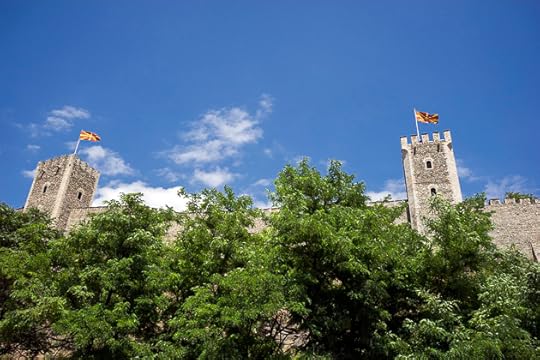
Scholars believe the fortress to have been constructed under the orders of Byzantine Emperor Justinian I, who had been born in the nearby city of Tauresium. The Kale (pronounced “kah-lay”, and not like the vegetable) was renovated in the 11th centur...
A Concise History of Macedonia
Macedonia’s history is a tricky topic, inextricable from the histories of its both its neighbors and its distant masters. It’s probably impossible to concisely tell the story of such a complicated area, whose borders have proven as amorphous as time itself, whose people comprise so many ethnicities, and whose very name is a source of controversy. Where do you start with Macedonia? It’s not going to be easy, but we’ll give it a shot…
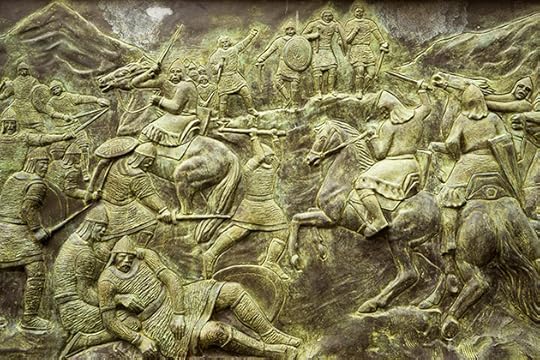
Prehistory
The first evidence of human activity in Macedonia d...
July 31, 2014
Skopje’s Bit Pazar
Whether you’re in the market for fresh fruits or a fun time, make a beeline to Skopje’s Bit Pazar, found at the northern end of the Old Bazaar. This is one of the largest outdoor markets in the Balkans, with a history stretching back to the beginning of Ottoman rule, in the fourteenth century.

The name “Bit Pazar”, Turkish for “Flea Market”, exposes a mild case of dyslexia I wasn’t aware I had. Every single time, I will refer to the place as the “Pit Bazaar”, regardless of how I concentrate, a...
July 30, 2014
In with the New: The Skopje 2014 Project
Skopje’s got construction fever, there’s no denying it. New statues and monuments have sprouted like weeds in the city’s plazas and parks. The Vardar River is lined by brand new neoclassical buildings, and spanned by recently-unveiled pedestrian bridges. It’s all part of Skopje 2014, an urban revival project which has proven as controversial as it is ambitious.
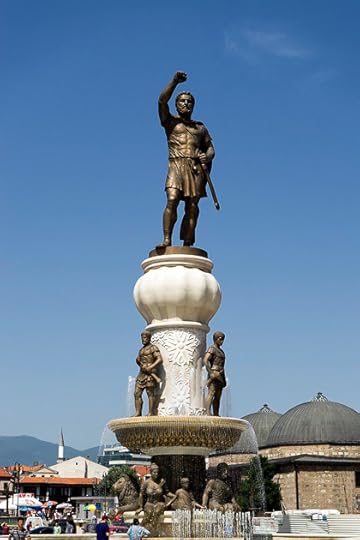
Skopje 2014 was announced a few years ago, with the object of beautifying the city and restoring some of the architectural grandeur lo...
July 28, 2014
How to See the Galičnik Wedding Festival
Macedonia’s most well-known traditional gathering is the Galičnik Wedding Festival, held every year in a Mijak mountain village above Lake Mavrovo. Though the town today has been largely abandoned, this festival has roots stretching back centuries and thousands of revelers still flock here in July for the festivities that include music, odd rituals, traditional costumes, games, drinking and fun. Sounds incredible, right? We thought so, too. So when our att...
July 27, 2014
Two Days in Kruševo
The mountain town of Kruševo, a couple hours to the south of Skopje, was the destination of our first extended road trip in Macedonia. As the highest town in the Balkans, Kruševo not only boasts an impressive natural setting, but was the scene of one of Macedonia’s most fascinating historical moments.
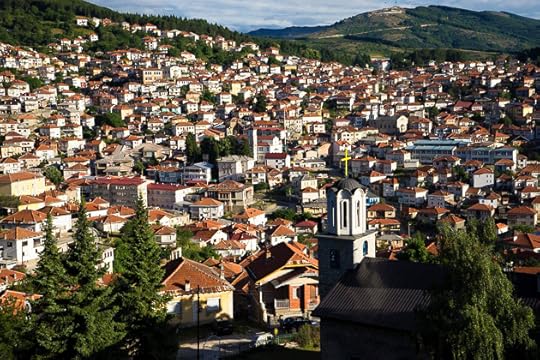
A century ago, Kruševo might have been a bubbling cauldron of revolutionary temperament, but today it’s settled down into a picturesque village of around 5000 inhabitants. But by no means could y...
The Elvis of Macedonia: Toše Proeski
Toše Proeski is easily the biggest pop star in Macedonia’s short history, having racked up a string of number one hits between his debut in 1999 and his untimely death in 2007. He was raised in the town of Kruševo, where his memory is kept alive in statues, street art and an unbelievable museum.

We picked up a CD of Toše’s greatest hits, in order to study up during our drive to Kruševo. Thirteen of his singles went to the top of the Macedonian charts, and he was wildly popular across all the e...
July 26, 2014
The Republic of Kruševo
On August 3rd, 1903, a small band of revolutionaries succeeded in capturing the Macedonian mountain town of Kruševo from the Ottoman Empire. Immediately, the Republic of Kruševo declared itself as an independent state, with Nikola Karev as its president. But the freedom was fleeting. Within ten days, the Ottomans had sent an overwhelming force into the hills and brutally crushed the uprising.
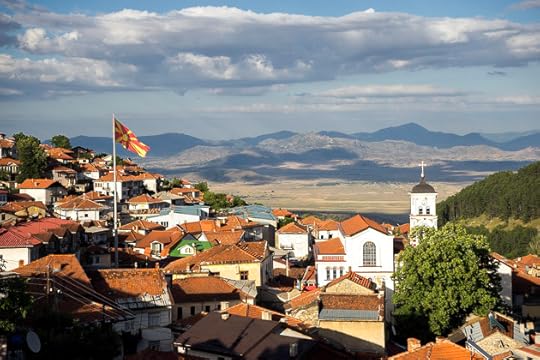
The Republic of Kruševo didn’t last long, but it plays an starring role in the historical identity of...
July 23, 2014
The Mosques of Üsküb
Skopje has been the capital of an independent republic for just over twenty years. Before that, it had been a part of Yugoslavia for around eighty years. But during the 520 years before that, Skopje belonged to the Ottoman Empire, who had given it the name of Üsküb. Five centuries are apparently enough to leave a lasting impression; north of the Vardar River, the city has retained much of its Turkish identity.
Mosques, Turkish baths, tea gardens, nargile cafes, and even some old guys sitting a...
July 22, 2014
The Millennium Cross of Mount Vodno
Stretched out along the Vardar River, Skopje is a long and narrow city whose expansion to the south is hindered by the presence of Mount Vodno. We took a cable car to the summit of Vodno for a close-up look of the Millennium Cross which crowns it, and to get a birds-eye view over Skopje and the surrounding region.
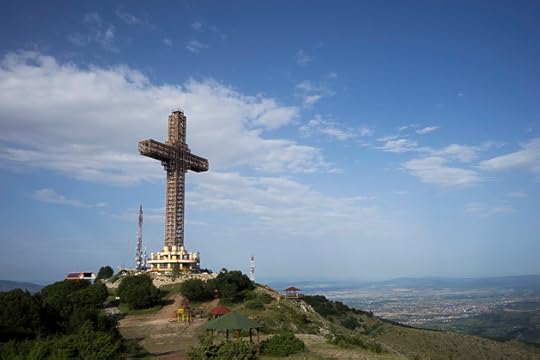
Erected in 2002 to commemorate 2000 years of Christianity in Macedonia, the Millennium Cross is among the largest Christian crosses in the world, measuring in at 66 meters (217 feet)...



